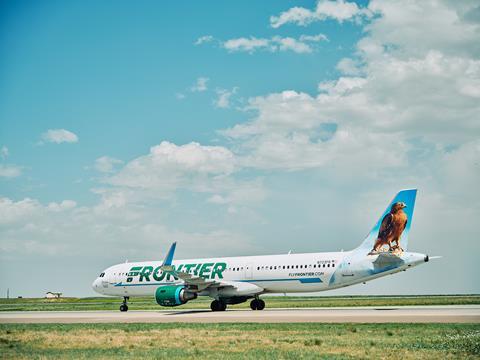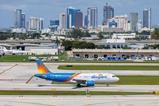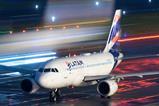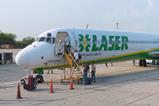US ultra-low-cost carrier (ULCC) Frontier Airlines expects its new network strategy focused on overlooked markets with less competition from its rivals will start paying off soon.
Parent company Frontier Group Holdings said during its quarterly earnings call on 2 May that it expects capacity to grow 12-14% over the second quarter of last year – and to post a similar full-year capacity increase over 2023.
”Pursuant to the shift to high-fare, underserved markets, a significant portion of scheduled capacity in the second quarter of 2024 is allocated to new markets which the company believes will drive higher RASM [revenue per available seat mile] as they mature,” Frontier says.

The Denver-based discounter indicated earlier this year that, due to the over-saturation of US leisure destinations, it was trimming unprofitable summertime flying to such core markets as Las Vegas and Orlando. Frontier say it is making “significant progress to simplify its network and allocate growth to high-fare and underserved” visiting friends and relatives markets, which will eventually drive higher margins.
“We expect results in the balance of the year to build on the revenue and network enhancements we’re implementing, most notably the transition to underserved, high-fare markets, revenue diversification and cost savings, including benefits related to network simplification,” says chief executive Barry Biffle.
Frontier plans to increase its network’s proportion of out-and-back flights to 80% in time for peak summer air travel, seeking operational simplicity and to reduce the risk of domino-effect disruptions.
The company touts its “better-than-expected cost and revenue performance” during the first quarter. It reports a loss of $26 million on the first three months of 2024, compared with a $13 million loss the prior-year period. Revenue increased 2%, year on year, to $865 million from $848 million.
Frontier’s first-quarter departures increased 14%, while the carrier’s average stage length was 9% shorter.
The ULCC also believes that its fleet of about 140 Airbus A320-family aircraft will give it an edge over competitors moving forward, pointing to its rising share of fuel-efficient A320neos and A321neos.
”Frontier took delivery of six A321neo aircraft during the first quarter of 2024, increasing the proportion of the fleet comprised of the more fuel-efficient A320neo family aircraft to 80%” as of 31 March, which it calls the “highest of all major US carriers”.
Jostling for market share in the US low-cost segment alongside Spirit Airlines, Sun Country Airlines, Breeze Airways and Avelo Airlines, all of which are feeling downward pressure from major airlines increasing their own low-cost offerings to leisure destinations.































